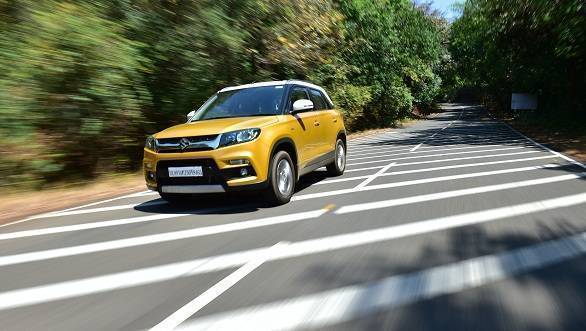National highways to get rid of speed breakers
Speed breakers are an Indian speciality. We can have them in ways and places that will beggar belief. But one real issue that has been carrying on un-addressed is the construction of speed breakers on national highways by local authorities. Usually badly marked or without markings, these cause traffic to brake suddenly and you can guess what happens next. Now the Ministry of Road Transport and Highways has decided to do something about it.
In a relief to road users, the ministry has asked all state governments and authorized agencies like National Highway Authority of India and Public Works Department to remove all speed breakers from national highways.

The ministry has arrived at this decision after finding that in many places local authorities are constructing speed breakers despite them having already issued clear guidelines stating that such speed breakers should not be constructed. It also blamed speed breakers for preventing the smooth flow of traffic and cited them as a safety hazard on high-speed corridors.
According to statistics released by the ministry, 6,672 people lost their lives in 2014 because of accidents caused by potholes and speed breakers. The ministry has directed the agencies to submit a report on the work completed by Wednesday.
The ministry stated that it had previously issued circulars reminding that recommendations have already been made for properly designed rumble strips to be placed at sharp curves, level crossings, congested and accident-prone areas on national highways where controlling speed becomes an issue. The ministry has also asked the concerned agencies to explore the feasibility of ensuring over-bridges or underpasses for pedestrians to crossover safely.
Speed breakers do serve a purpose. In the context of high speed corridors, they have a role to play. The bigger, faster road's traffic has priority and that means it should be able to flow at high speed without interruption. To do this, smaller roads that join the bigger one can require speed breakers. Access control â€" or the process of creating the smoothest way for small road traffic to merge into big road traffic â€" can require other measures, including barring a number of small roads and well-designed ramps that allow smooth mergers where the smaller road traffic speeds up to match the speeds of the big road traffic.
A speed mismatch is a problem â€" and speedbreakers on national highways also suffer from this problem. In a country full of drivers who follow rules, access control is easier. A stop sign in the US or Europe would many times be enough to achieve what a speed breaker will be needed for here.
Given how much efficiency can come from uninterrupted travel on high-speed corridors, the Ministry of Road Transport and Highways move is a good one. But as is normal with India and its varied conditions, the speed breaker removal on its own is sure to have other issues come with it. Will rumble strips be enough? Have we learnt the universal truth that underpasses are more likely to used â€" though more expensive to make â€" than overpasses for pedestrians?
We welcome the signs that our roads and highways and India's notorious fatality rate is finally causing some signs of positive movement on the part of the authorities. But we'd like to see more plans as well as more integrated ideas to make our traffic and pedestrians safer.